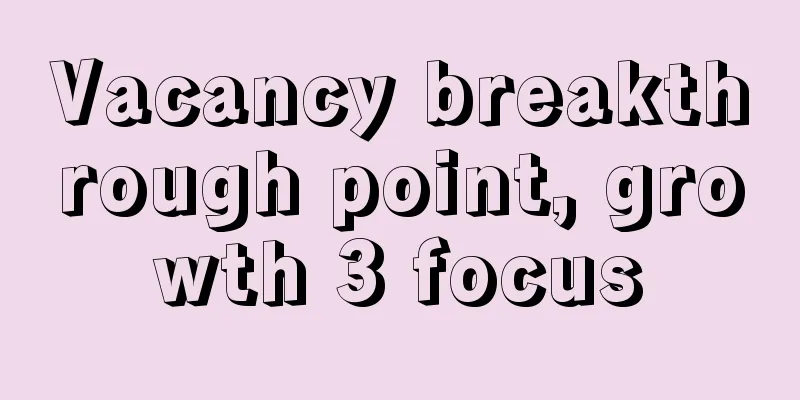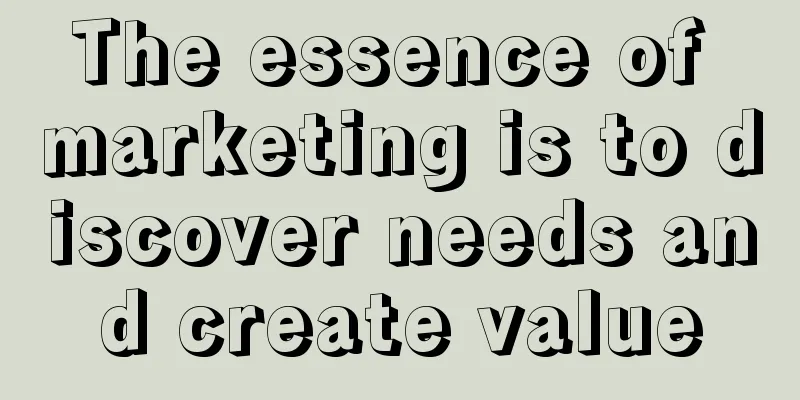Interviewing hundreds of people | Sharing with you my inner monologue as an interviewer

In my past experience, I didn’t have much experience as a job seeker. It was basically the chairman or CEO who asked me to leave. But as an interviewer, I have interviewed at least a hundred people, so today I want to change the perspective to help you understand why we ask certain questions during the interview process and what the purpose is. I hope it will help you a little on your job search. It should be noted that I am not an HR who specializes in recruitment, and I will not answer some brain-opening logical thinking questions. I am only sharing my inner monologue as an interviewer. If you are looking for a job, you might want to understand how the interviewer asks questions and the real intention behind the questions. This way you can increase your job search success rate by being more targeted. Basically, as an interviewer, when I interview someone, I will assess them based on five points: values, authenticity, professionalism, stability, and growth. 1. About ValuesDuring the entire interview process, in addition to the formal questioning session, there is also a chat time after the questions are asked. We will observe whether the candidate is inconsistent in words and deeds and is not sincere during the whole process. Please note that our interviewers are already observing you from the moment you walk in. During the Q&A session, we will ask questions like:
For questions like this, we will judge your inclination towards these choices from the process of your answers. In other words, we will roughly judge what kind of person you are based on the inclination shown in your answers. For the first question, we will use the routine taught on the Internet to mention a minor shortcoming to deal with it. We can judge this routine at the first time. For the second question, we will look at your description to see whether you can objectively and accurately evaluate a person, and also find out what kind of people you would rate highly and what kind of people you would rate low. Then we can roughly judge what kind of people with the same values you would be close to, and we can immediately understand whether you are suitable for each other. For the third question, we will look at what kind of difficulties will be a problem for you (whether you are capable enough to bear them), and whether you tend to escape or bear the difficulties (whether you have a more positive attitude and whether you are responsible). In addition to the questions mentioned above, we consider issues throughout the process from multiple dimensions and will also take these points into consideration for observation. 2. About AuthenticityRegarding past experience, many students care about "whether past achievements are impressive enough". In the eyes of us interviewers, this is certainly important, but it is not our top priority. We consider authenticity first, and your performance in it second. Generally speaking, as interviewers, we have limited information, which is basically from the content of your resume. We will dig deeper into what you write on your resume. If you write about your past work achievements on your resume, we will ask questions about this experience. Usually we encounter two types of people. One type writes very simply and clearly, describing what methods were used to accomplish what results. The other type lists a bunch of things to prove that they are very good at these aspects. At this time, we are more concerned about how the results were obtained than what they are . We should also analyze the reasons why you were able to accomplish this task. Here, I generally look at it from the following dimensions:
It is precisely these points that are most likely to expose whether you are involved in the whole thing as a project leader or a assisting project member. We can almost reach a conclusion very quickly. So it doesn’t matter whether you tell me that you are the person in charge or a project member. What matters is whether you can reflect your thinking when you give the answer. Therefore, on this point, I suggest that you do not think that you can be fooled easily, but express your thoughts sincerely and demonstrate your abilities. 3. About ProfessionalismThe general approach to professional questions is to ask some basic questions + case questions . 1. For basic questionsWhen I ask a question like "How do you think you should write a copy?", some candidates may think this is a stupid question, but there is actually a deep meaning behind it. If you are truly experienced, you will be able to give a concise answer or give a specific example of how you write copy. For those who have no experience, their first reaction is to answer some superficial concepts or logic. Then we can easily judge whether their answer comes from their own cognition after practice or the knowledge they learned from paying for courses. So my advice is that you must sort out your understanding of the basic knowledge before the interview, instead of showing off the knowledge you learned in class again. 2. For case questionsThere are generally two types of questioning directions for case questions. The first is to focus on the business that your company wants to do, and the other is to cite examples from other cases. Essentially, both of these methods test whether a person has the ability to think systematically. It doesn’t really matter what the correct answer is. What’s important is whether the person’s logic is clear and whether he or she can push a problem forward during the answering process. As for why we ask questions about the business that our company wants to do, it is essentially to see whether the person is sincere enough in applying for this job, whether he has learned about our company in advance, and has done relevant research. Otherwise, we will most likely know that we are just one of the candidates who were selected after he sent out a large number of resumes. If you were an interviewer, you would definitely give priority to job seekers who have matching abilities and are dedicated enough, just like I do. IV. About stability
These are almost the questions we must ask when facing people who frequently switch jobs. We need to know why this person left, whether it was due to lack of professional ability or lack of communication, collaboration, upward management, etc. Of course, there are also some people who change jobs frequently but are getting better and better. What we need to judge is whether he makes a living by job-hopping, or whether his own development is faster than the company's development. When asking questions, we look at it from the following perspectives: 1. Flat jump or upward jump?If this person has jumped so many times, but is still at the same level, and the content of his responsibilities has not changed much (whether it is bigger or smaller, shallower or deeper, richer or more single) If you have multiple work experiences, you must pay attention to the changes in hierarchical relationships. For example, in your first job you may be an executive-level specialist, in your second job you may be a supervisor with a little management experience, and in your third job you may be a manager or director in charge of business. Changes in levels must be reflected in the resume, otherwise we will definitely have this idea in our minds: "After so many years, this person has not grown and has been jumping around aimlessly." It will be easy to arbitrarily assume that as long as the novelty of the job fades, this person will leave. 2. Is it a rational decision or no plan at all?After multiple work experiences, no matter how long or short the time interval between jobs is, we will ask about the reasons for leaving and joining the next company. The purpose is to see whether the person has a clear plan and whether there is any connection between job changes. For example, if a person has worked in new media operations, event operations, user operations, etc., I can roughly judge that his job-hopping choice is based on the horizontal expansion of "operations". It can be roughly judged that this person is still in the early stage of career exploration in the workplace, depending on the person's years of work. 3. If it is earlier than 3 years, it is acceptable, but if it is more than 3 years, it is basically not consideredThen we look at whether this person joined the next company because he was laid off or because someone poached him. The first type is more common, while the second type is to see why the person joined the company, whether it was because of the salary offered or some other reason. Ultimately, we have to judge the "motivation" for joining. 5. About growthRegarding growth, I generally follow the "Five Bulls" theory I mentioned before, that is, which are the best people, best companies, best cases, best works, and best books in the industry where our company is located. I will ask questions to see if this person pays attention to industry information and whether he has done any learning and practice. The information you can obtain by asking this question includes:
If a classmate who works in community operations tells me that he knows a lot about community operations, but he does not use Moments, has few WeChat friends, and has no knowledge of any well-known brand communities in the industry, then it is conceivable that such a person is obviously unsuitable. I have seen many students who have studied a lot of courses and have been focusing on various so-called operational knowledge, but have almost no understanding of the industry. This is why I have always emphasized to everyone that both "career improvement" and "industry improvement" are necessary. The above are some of my experiences as an interviewer interviewing others. I really hope that friends who are struggling to find a job can see this and it may be of some help to them. I am not a professional interviewer, but I believe these experiences will still be of some use. When you know the assessment dimensions behind the questions and prepare carefully, the results will not be too bad. Finally, I would like to mention that some students may worry about being trapped in the interview plan. What I want to say here is that you don’t need to dwell on this matter. If the value of a plan is so great, then if it were me, I would definitely use it to vigorously promote myself, turning it from a loss into a value endorsement. However, from the interviewer's perspective, most people's solutions are far less valuable than they imagined. So instead of dwelling on this, it is better to spend more time summarizing and improving from the interview to help yourself improve your job search success rate. I hope today’s sharing will inspire you! Author: Zhizhong Source: WeChat official account: "Shixian Operation (ID: yyshixian)" |
Recommend
Why shopping makes people anxious
As the end of the year approaches, there are more ...
Douyin's food delivery business shrinks and is transferred from local life to e-commerce department
Douyin and Kuaishou, two short video giants, are t...
Can I only choose one transit warehouse at Shopee? How do I choose a courier?
Now more and more merchants have joined Shopee. Af...
How does Amazon charge a collection fee? Fee Standards
As an e-commerce platform, Amazon charges a certai...
What does the popularity of "Black Plum Sauce" reflect?
I believe everyone has been brainwashed by the son...
Can I continue to optimize Shopee products? How to operate?
Nowadays, although the profits of cross-border e-c...
JD.com has a hard time dealing with Meituan: a defensive battle doomed to fail?
JD.com has officially entered the food delivery fi...
Middle-aged and elderly women's clothing is becoming a hot topic in the e-commerce industry
It has been four years since the launch of WeChat ...
What are the cross-border e-commerce platforms for individuals to open stores? Who is suitable for cross-border e-commerce?
More and more individuals and entrepreneurs are lo...
Is cross-border e-commerce suitable for selling cashmere sweaters? What is suitable for selling?
In global trade, cross-border e-commerce has becom...
Which is harder to learn: accounting or cross-border e-commerce? What are the advantages and disadvantages of each?
In today's digital age, accounting and cross-b...
Even Apple has picked up the weapon of "topic marketing"!
Entering October, the technology industry has been...
Is the payment returned by Amazon in full? FAQ about payment returns
In fact, Amazon's business is often based on a...
Is it still possible to increase the volume of Xiaohongshu?
As a content-driven social platform, Xiaohongshu i...
It’s 2023 now. Are there still brands that don’t know how to use memes?
Starting from the current social hot topic - the p...









